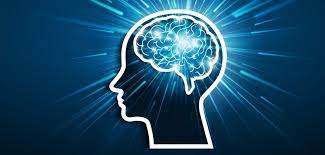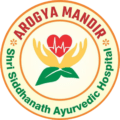Memory, concentration & grasping power

Ayurveda, an ancient holistic healing system, places great importance on the intricate balance of mind, body, and spirit. In this exploration, we delve into the Ayurvedic perception of memory and concentration, unraveling the wisdom that has guided generations towards optimal cognitive well-being.
Introduction
Ayurveda, originating from ancient India, is not just a system of medicine; it’s a way of life that encompasses physical, mental, and spiritual well-being. In this digital age, where cognitive demands are ever-increasing, Ayurveda’s insights into memory and concentration hold particular relevance.
Understanding Memory in Ayurveda
A. Tridosha Influence on Memory
Memory, grasping power, and concentration depend on the stability of the mind. Doshas play a crucial role in influencing the mind. We are aware that almonds have the power to enhance brain functions, but this is effective only for some people. It may not have any impact on brain functions for others. The reason behind this is the reduction in memory, concentration, or grasping power due to various factors. The exact causative factor behind these disorders needs to be identified. Almonds, being warm in nature, are beneficial only when brain functions are reduced due to Kapha Dosha.
1. Vaataj Mind:
Vaata dosha makes the mind unstable. An unstable mind struggles with proper grasping and cannot store information for a longer time. Concentration is not possible with an unstable mind. In such conditions, reducing vaata dosha is essential to increase the stability of the mind. This, in turn, enhances all brain functions. Medicines like guduchi and jatamansi can be helpful in such conditions.
Therapies:
- Shirodhara
- Snehapaan
- Abhyanga
- Nasya
- Basti, etc.
2 Pittaj Mind:
Pitta is responsible for good grasping. If pitta is reduced, it can lead to a reduction in brain functions. In such cases, treatments that increase pitta are needed. Medicines like Jyotishmati and Vacha can be beneficial.
Therapies:
- Snehan Swedan
- Nasya
- Kaphaj Mind:
3. Kapha Mind
Kapha is a hurdle in the process of cognition and grasping but is responsible for the longer storage of memory. If kapha dosha is increased excessively, it can slow down the process of grasping power. Here, kapha-reducing treatments are useful. Medicines like Vacha, Almonds, and Shankhapushpi can be beneficial.
Therapies:
- Vaman
- Swedan
- Nasya, etc.
To determine which dosha is reducing brain function, a detailed examination of the patient is necessary. After a correct diagnosis, treatment can be very effective and fast.
B. The Role of Dhatus
Ayurveda defines seven Dhatus or body tissues, each playing a role in memory. The proper nourishment of these Dhatus is vital for optimal cognitive function. Understanding how lifestyle and diet impact these Dhatus is key to addressing memory concerns.
Ayurvedic Practices for Improved Memory and Concentration
Ayurveda suggests specific practices to enhance memory and concentration, emphasizing the profound impact of mental well-being on overall health.
Meditation and Mindfulness:
In Ayurveda, meditation and mindfulness are esteemed practices for cultivating concentration. These techniques work synergistically to calm the mind, diminish mental chatter, and augment the capacity to focus. By integrating meditation and mindfulness into daily routines, individuals can experience a quieting of the mind, fostering an environment conducive to improved cognitive well-being. The regular practice of these techniques aligns with Ayurvedic principles, emphasizing the mind-body connection and the importance of mental equilibrium in maintaining overall health.
Yoga Asanas for Concentration:
Ayurveda recognizes the intimate connection between the body and mind, and certain yoga asanas are specifically recommended to enhance concentration. Asanas like Padmasana (Lotus Pose) and Sirsasana (Headstand) incorporate a harmonious blend of controlled breathing (pranayama) and physical postures. This combination not only helps balance the Doshas but also works to sharpen mental clarity. The intentional focus on breath control during these yoga postures aligns with Ayurvedic principles, emphasizing the regulation of prana (life force energy) to achieve a harmonious state of well-being. Incorporating these yoga asanas into a regular practice routine can contribute to improved concentration and overall mental resilience.
Dietary Recommendations for Cognitive Health
Here are Ayurvedic diet tips for memory improvement:
- Incorporate Ghee (Clarified Butter): Ghee is considered beneficial for brain health in Ayurveda. It contains omega-3 fatty acids and promotes the assimilation of nutrients. Including a moderate amount of ghee in the diet can support memory and cognitive functions.
- Include Foods Rich in Omega-3 Fatty Acids: Omega-3 fatty acids, found in fatty fish such as salmon and walnuts, are known to support brain health. Including these foods in the diet can contribute to improved memory and cognitive function.
- Consume Brahmi: Ayurvedic herbs like Brahmi are traditionally associated with enhancing cognitive functions. These herbs can be consumed in various forms, such as herbal teas or supplements, to support memory improvement.
- Moderate Intake of Spices: Certain spices like turmeric and black pepper are known for their anti-inflammatory properties and may contribute to brain health. Moderate inclusion of these spices in meals can be beneficial for memory enhancement.
- Colorful Fruits and Vegetables: Vibrant, colorful fruits and vegetables are rich in antioxidants, which play a role in protecting the brain from oxidative stress. Berries, leafy greens, and colorful bell peppers are examples of such brain-boosting foods.
- Moderate Intake of Nuts and Seeds: Nuts and seeds, such as almonds, walnuts, and sunflower seeds, contain nutrients like vitamin E and omega-3 fatty acids that are associated with cognitive health. Including these in moderation can be beneficial.
- Stay Hydrated with Herbal Teas: Hydration is crucial for overall health, including brain function. Herbal teas, such as tulsi (holy basil) or rosemary tea, can be hydrating and may have cognitive benefits.
- Avoid Heavy and Hard-to-Digest Foods: Ayurveda suggests avoiding heavy, greasy, and hard-to-digest foods, as they may lead to sluggish digestion and impact mental clarity. Choosing lighter, easily digestible meals supports overall well-being.
Importance of Hydration in Cognitive Function
Dehydration can impair cognitive function. Ayurveda recommends sipping warm water throughout the day to maintain hydration without overwhelming the digestive system. Proper hydration ensures optimal functioning of the brain and nervous system.
Ayurvedic Lifestyle Changes for Better Concentration
Sleep Patterns and Their Impact
Ayurveda recognizes the significance of quality sleep in cognitive well-being. Establishing a regular sleep routine, going to bed early, and creating a calming bedtime environment contribute to improved concentration and memory.
Managing Stress Through Ayurvedic Practices
Stress is a common disruptor of cognitive function. Ayurvedic practices like Abhyanga (oil massage), Shirodhara (pouring oil on the forehead), and Nasya (nasal administration of herbal oils) effectively alleviate stress and promote mental clarity.
FAQs
- Ayurveda is a comprehensive system that not only treats ailments but also focuses on preventive care. By maintaining balance and harmony, Ayurveda promotes overall well-being.
- The timeline for results varies among individuals. Consistency in Ayurvedic practices, coupled with lifestyle adjustments, is key to experiencing long-lasting improvements.
- Yes, Ayurveda can complement modern medicine. However, it’s essential to consult with healthcare professionals to ensure a coordinated and safe approach.
- Ayurvedic practices can be adapted for all age groups. However, the dosage and specific recommendations may vary. Consultation with an Ayurvedic practitioner is advisable.
Uniqueness of our therapies
At Arogya Mandir – Shri Siddhanath Ayurvedic Hospital, Miraj, we delve deeply into the ayurvedic examination of each patient. Utilizing noninvasive Ayurvedic diagnostic tools such as Ashtavidha Parikshan and Nadi Parikshan, we precisely determine the pathogenesis of the disease and then prescribe therapies tailored to the specific condition. This approach leads to expedited results.
Our therapies boast the following distinctive features:
– Tranquil and hygienic therapy rooms staffed with trained therapists in a positive environment.
– Selection of appropriate massage oil based on the patient’s Prakruti and the condition of the disease.
– Complimentary Prakruti and Dhatu Sarata examinations before the commencement of therapies.
– Authenticated procedures for each therapy.
– Judicious use of herbal medicines and instruments during the therapy sessions.
– Specialized rooms equipped with all facilities for inpatient care.
Feel free to share this article at no cost.
Copyright message – Dr. Prashant Chivate has published this article on drchivateayurved.org for informational purposes about diseases. Any other use of this article is strictly prohibited. All rights reserved.
